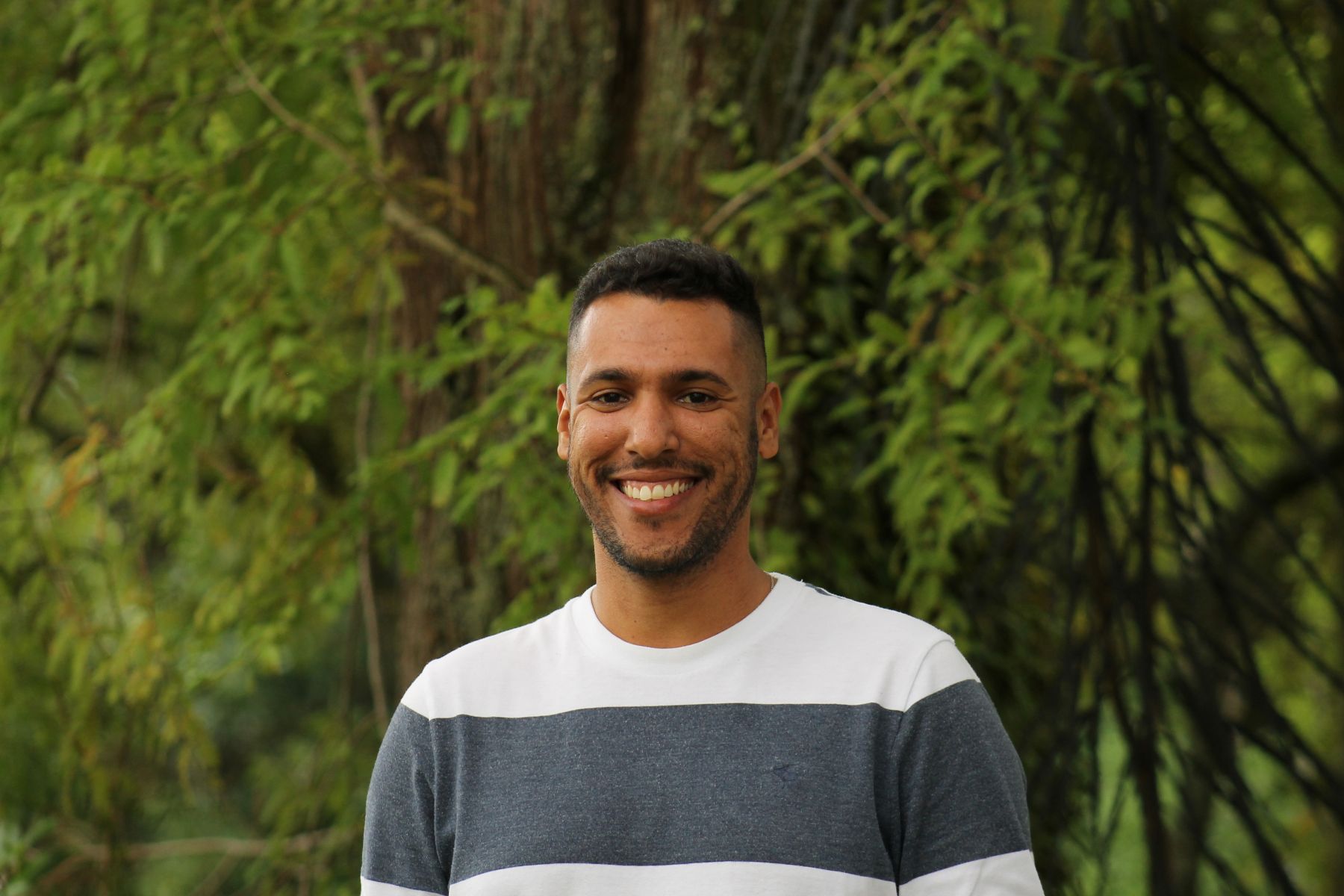Scientist profile: David Siqueira

Embracing the joy of working with plants
Watching a seed germinate, propagation scientist David Siqueira says, is a bit like he imagines childbirth can be: hard work but incredibly rewarding.
For the past two years since starting at Scion, he has immersed himself in the art and science of plant propagation – refining techniques to improve germination, rooting success and helping plants transition smoothly from lab to nursery. It takes a lot of patience and resilience, but David says that pays off when the plants begin to thrive. “When you find a way to germinate or root a plant, having the joy of watching that (plant) achievement grow in front of you is amazing.”
His workdays usually begin with a walk to Scion’s nursery, where fragile young cuttings – some still without roots – need careful attention. “We have to make sure the plants are all okay and doing what they should be doing,” he says. “They all have different biology, so some cuttings will grow roots easily and others just won't. Then you have to start playing with hormones and the environment to create these things for them.
“We literally need to babysit them to see if they are happy or not.”
Since starting at Scion, David has led a New Zealand-first study aimed at improving propagation and increase the production of indigenous species in nurseries. The study investigated the impact of container grade size on the survival and field performance of 12 key natives – to better understand the link between containers and post-planting seedling survival and growth performance. Monitoring of these plants and data analysis around the research is continuing.
Data analysis is one of David’s favourite parts of the work, as well as sharing his learnings with others. “I really like that part when you get to the end of (months of work) and you have your results, even if they sometimes are not showing what you would like them to. Still, the result is advancing science – you can still tell people don't try that because I've tried and it doesn't work.”
From Rio to Rotorua
David grew up in Rio de Janeiro. His naturally curious nature drew him to science; he particularly wanted to understand endemic species and the factors that affect their growth and performance.
Like New Zealand, Brazil has a lot of endemic species. Many of these in both countries are not well understood – in New Zealand there are big gaps in knowledge in the propagation space – and David wanted to change that. So he studied towards a PhD in plant production at Brazil’s Universidade Estadual do Norte Fluminense, a young institution by university standards that was founded specifically for research. The PhD was run jointly by Brazil and Denmark, so David split his time between Rio and Copenhagen. He loved Denmark, though the cold winters were tough after the Rio heat he was used to.
“In Rio if it’s 20 degrees everybody complains it’s too cold. (In Denmark) the winters were gray, rainy and just miserable. I didn’t enjoy that.”
After completing his PhD in 2021, David was offered an early career position with the Brazilian university, working with and supervising undergraduate and master’s students and further refining propagation techniques. He stayed there for two years and then the role at Scion came up.
Moving alone to a new city and country was scary at first – Rotorua is, he acknowledges, quite a change from Rio – but he’s made some good friends and life here has changed his perspective on things.
“I’ve learned how to love lakes, which aren’t really a thing in Brazil. I also can’t handle big cities anymore. I went home a few months ago, and I hated it. It was good to see family and friends, but the traffic and noisy city was overwhelming.”
David enjoys mountain biking and Rotorua is of course great for that. “I'm in the best place for that, even though I don't do as much as I like to.”
He likes reading and movies, especially ones that don’t make him think too hard after his busy weeks, and he’s a beach person. Mt Maunganui is hands down his favourite because it feels a little like home. “There are a lot of Latin people living there because they come for the kiwifruit picking,” he says. “So I can hear Spanish and Portuguese often being spoken.
“In Brazil if you want to go to a nice quiet beach you’d need to travel four hours, five hours. Here it’s quite laid back compared to other places I’ve lived, and it's just two hours away from skiing if you like that. I have everything I want in a small area.
Going native
David was invited to share some of his research at the International Seed Testing Association Conference in Christchurch earlier this month. He was the only presenter focused on New Zealand’s unique flora and it was a rare opportunity to showcase his work on a global stage. “It was an exciting chance to contribute to global discussions on best practices for seed testing and propagation,” he says.
He hopes to continue contributing to New Zealand’s understanding of indigenous tree growth: he really enjoys working with natives. Puriri is his favourite tree, because it grows fast, making it easy to work with. “But it’s also sensitive to environmental changes. You have to babysit it sometimes – if it gets too cold, you know it won’t like it.”
For David, though, the cold isn’t so bad: Rotorua has changed his perspective on that, too. “Living in Rotorua has taught me that winter has its perks. A hot pool soak makes a big difference and that’s not very common elsewhere.
Can he see himself settling down here, then? “Yes,” he says simply. “I really like Rotorua.”
